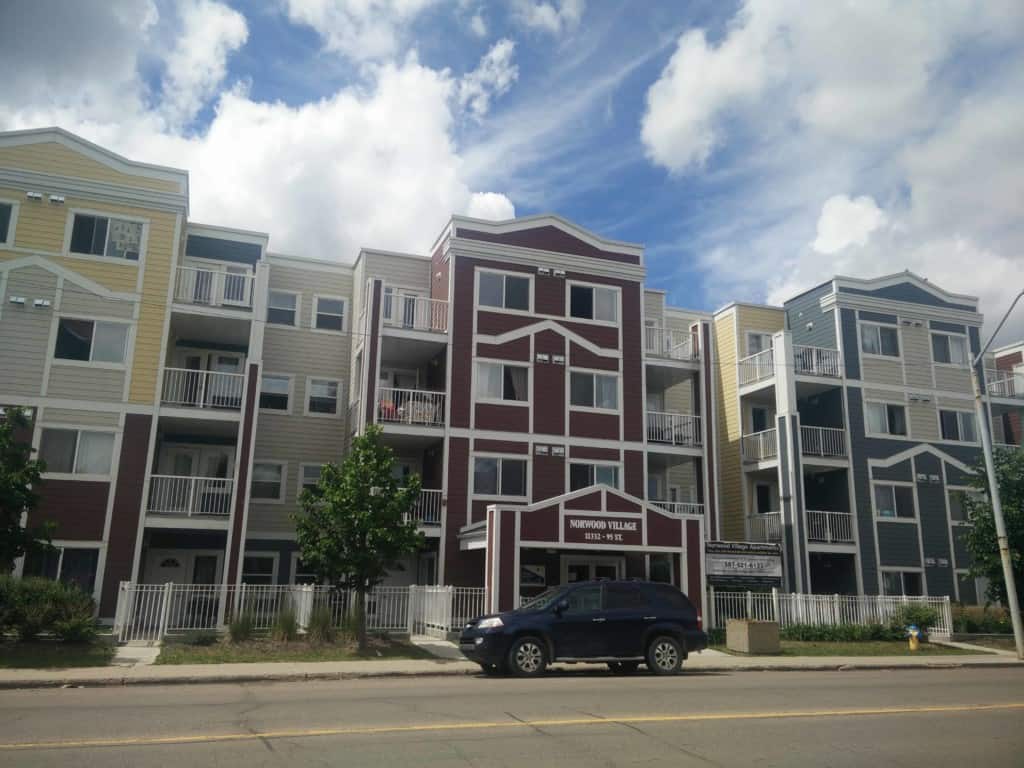City council lifts non-market housing pause
Community leaders want firm policy and council oversight on new projects
The seven year non-market housing pause is now lifted in Alberta Avenue, Eastwood, Queen Mary Park, Central McDougall, and McCauley after meetings with the City’s executive council on June 10 and city council on June 18.
City council states the results of a new policy and approach will ensure better distribution of affordable housing throughout Edmonton, not just the five affected neighbourhoods.
Mayor Don Iveson says the attitude toward affordable housing is changing from being a problem to being a solution to social challenges, and that there is a stigma around affordable housing.
On June 10, many panelists approved of lifting the pause.
Biruk Senbetu, an engineer, lives in Queen Mary Park and is a refugee from Ethiopia.
“I’m trying to save money to get accreditation here, but more than 50 per cent of my income goes to rent. Having more affordable housing in my neighbourhood would help families and other community members that live here.”
Cam McDonald, executive director of The Right at Home Housing Society, said, “In non-market housing, police intervention is relatively low. The idea that non-market housing leads to more problems is a bit of a slippery slope sometimes.”

Ward 7 Coun. Tony Caterina says, “One part that hasn’t been mentioned is not only the concentration [of the housing], but the efforts of the community,” Caterina says.
Susan McGee, CEO of Homeward Trust Edmonton, says, “A lot of the problem was that there wasn’t a lot of clarity in what was being proposed for a site. There’s been some really intentional work around zoning. When communities are asked to entertain a proposal and in many cases, they rightfully don’t trust what exactly is going to be built and how it’s going to be operated. That’s putting a lot of pressure on them.”
Coun. Scott McKeen represents Ward 6, which includes Queen Mary Park, Central McDougall, and McCauley. “I understand their distrust. They see it as a problem. They see it as more of the same,” says McKeen. He asked panelists if removing the pause would uplift those communities.
According to City policy drafted since the moratorium, every neighbourhood is to have 16 per cent affordable housing. Currently, Alberta Avenue has 7.8 per cent non-market housing and Eastwood has 11.49 per cent. According to City data, calls for police at affordable housing came in at 2.8 per cent in Alberta Ave and 12.49 per cent in Eastwood.
Melanie Anderson, Alberta Avenue Community League’s development director, says she’s against the pause being lifted because she’s afraid the City will interfere with the natural market emerging in the community and buy properties normally bought by people during the pause who couldn’t afford to buy a home elsewhere.
She continues, “If they want to remove the stigma and if that is truly their problem with the pause in our neighborhoods, then write into the guidelines a firm, concise statement and actual percentages all neighbourhoods have to hit before other neighbourhoods with higher ratios get bumped again.”
She says doing so would protect every neighbourhood from an unequal ratio of affordable housing. “Then you can remove the pause which triggers the stigma, and turn the conversation to even distribution across the city where people can live in affordable housing where they normally could not.”
Greg Lane, president of McCauley Community League, says he’s torn on the issue.
“I personally feel it’s a human right to have housing. It’s sad to think that affordable housing has a negative perception in the public eye,” he says. “I would stress to administration and council that there is some clean up that needs to be done. There are a lot of illegal rooming houses, predatory housing. That stuff needs to come to an end. I don’t really care how you do it, but please clean that stuff up. You’ll have more support from the community if you do.”
Michael Brown, a Central McDougall community league member, says, “What people are saying is this pool of vulnerable people is being concentrated more and more into the urban core and this is creating a major draw for criminal elements and people who would use and abuse those people.” Central McDougall is also participating in the Abundant Community initiative. “As we continue to reach out and have conversations about housing and poverty, we have heard a strong consensus that we need real policy to guide housing investments in our communities, not guidelines, not half measures.”
Community leaders sent a letter to city council with recommendations going forward, which included the suggestion that council “directly oversee the approval process for all new non-market housing projects and emergency/crisis resources and programming in the five core, low-income neighbourhoods.”
Some of the ideas behind the reasoning was that communities with significant poverty are more complicated and more community input is required. Any new investments should strengthen the community with goals like raising home ownership rates, building community capacity, and reducing transiency.
Featured Image:







